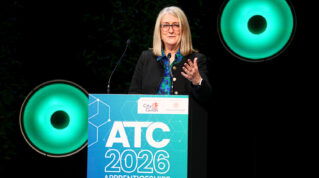University graduates should be banned from becoming publicly-funded apprentices, a former government skills adviser has said.
The radical proposal is one of ten ideas put forward by EDSK, run by Tom Richmond, in its new report on addressing “neglected” routes for young people who don’t pursue an academic pathway through education.
The report is provocatively titled: “Broken ladders, why the ‘ladder of opportunity’ is broken for so many young people, and how to fix it”.
Skills minister Robert Halfon frequently uses the phrase “ladder of opportunity” in public speeches when describing government policies on technical education and apprenticeships.
The graduate ban would, the report argues, prevent apprenticeship levy funding being spent on “highly qualified existing workers” and protect spending for young people not following an academic path through education.
This comes following concerns that the apprenticeship system is becoming increasingly dominated by white-collar professionals on expensive, higher-level courses while the numbers of young people and lower-level apprenticeships are in decline.
“The simplest way to prevent apprenticeship funding being used on highly qualified existing workers is to ban anyone who holds a university degree or equivalent qualification from starting an apprenticeship,” EDSK said.
“This would protect apprenticeships as a route for those who do not want to follow an academic pathway after age 16 but without unduly stifling the breadth of opportunities available across the apprenticeship system, and without disrupting the wider operation of the employer-led levy funds.”
EDSK said young people who don’t go to university are comparatively “starved of political and financial investment” despite just 37 per cent taking three A-levels at school or college.
At the same time, job prospects have “stagnated” with 12.3 per cent of 16 to 24-year-olds in England not in education, employment or training (NEET), the same rate as in 2000, but down from a peak of 16 per cent in 2010.
Tom Richmond, a former government skills adviser, and now director of independent think tank EDSK, said: “Maintaining the well-trodden route from school to university cannot and should not come at the expense of the majority of young people who want to pursue other career options.
“Regrettably, our report shows that the first rungs of the ladder of opportunity for many school and college leavers are now broken and urgently need to be repaired.”
‘Purist’ position
However, training bodies lashed out at graduate apprenticeship ban plan.
Mandy Crawford-Lee, chief executive, University Vocational Awards Council, criticised EDSK’s “purist” position that “‘proper’ apprenticeships should be designed to meet the needs of under-served young people”.
“From a 2023 standpoint, we should dismiss the false notion that apprenticeships are the only suitable for school/college leavers unable to reach the ‘academic’ standards needed to take them to university,” she said.
And Simon Ashworth, director of policy at the Association of Employment and Learning Providers, thought the idea would “significantly restrict employer choice”, arguing instead for a larger apprenticeship budget for “proper incentives to support young people access life-changing apprenticeship opportunities”.
EDSK also examines pre-employment training opportunities for young people and recommends redesigned versions of Kickstart and traineeships.
Kickstart was a temporary job creation scheme during the pandemic which paid employers to hire 16 to 24-year-olds on universal credit who were at risk of long- term unemployment.
A new Kickstart-style scheme should be introduced which is targeted at young people under age 21, those without a university degree, care leavers, or young people in contact with the justice system.
EDSK’s proposed new traineeship model would see trainees paid a £100 allowance and employers offered up to £5,000 in incentive payments. They would be attached to occupations to encourage progression to jobs or apprenticeships.
An equivalent “young traineeships” scheme should also be introduced providing 50 days’ work experience a year for 14 to 16-year-olds.
New English and maths qualifications that are linked to the 15 technical education routes should be launched to tackle the “adverse impact of GCSE resits and generic functional skills qualifications”.
Exam boards should be allowed to develop the new level 2 courses with half of the curriculum drawn from the existing functional skills syllabus, and the rest geared towards the relevant industry.
“This approach would allow the government to continue with their current level-based approach to setting English and maths requirements but would ideally mean that fewer students are prevented from pursuing their chosen occupation or apprenticeships due to inappropriate curricula or unnecessary learning goals,” the report said.
The government should also commission an independent review of T Levels to consider ways to improve take-up. EDSK suggests the review could look at ways to reduce the size of the flagship qualifications and re-model the foundation year to look more like a traineeship.
A DfE spokesperson said: “Under-25s continue to make up over half of all apprenticeship starts which will play an essential role in boosting our economy, creating jobs and transforming people’s lives.
“We are investing billions, so every young person has access to the high-quality education and training they need to succeed and continue to promote the range of exciting technical opportunities available to young people.
“Our new Advanced British Standard qualification will also make sure all young people get the opportunity to study a mix of academic and technical subjects, alongside continuing to study English and maths.
“So young people gain vital work experience, schools and colleges are required to offer every pupil at least one experience of a workplace by age 16, and a further experience by age 18.”
















Your thoughts